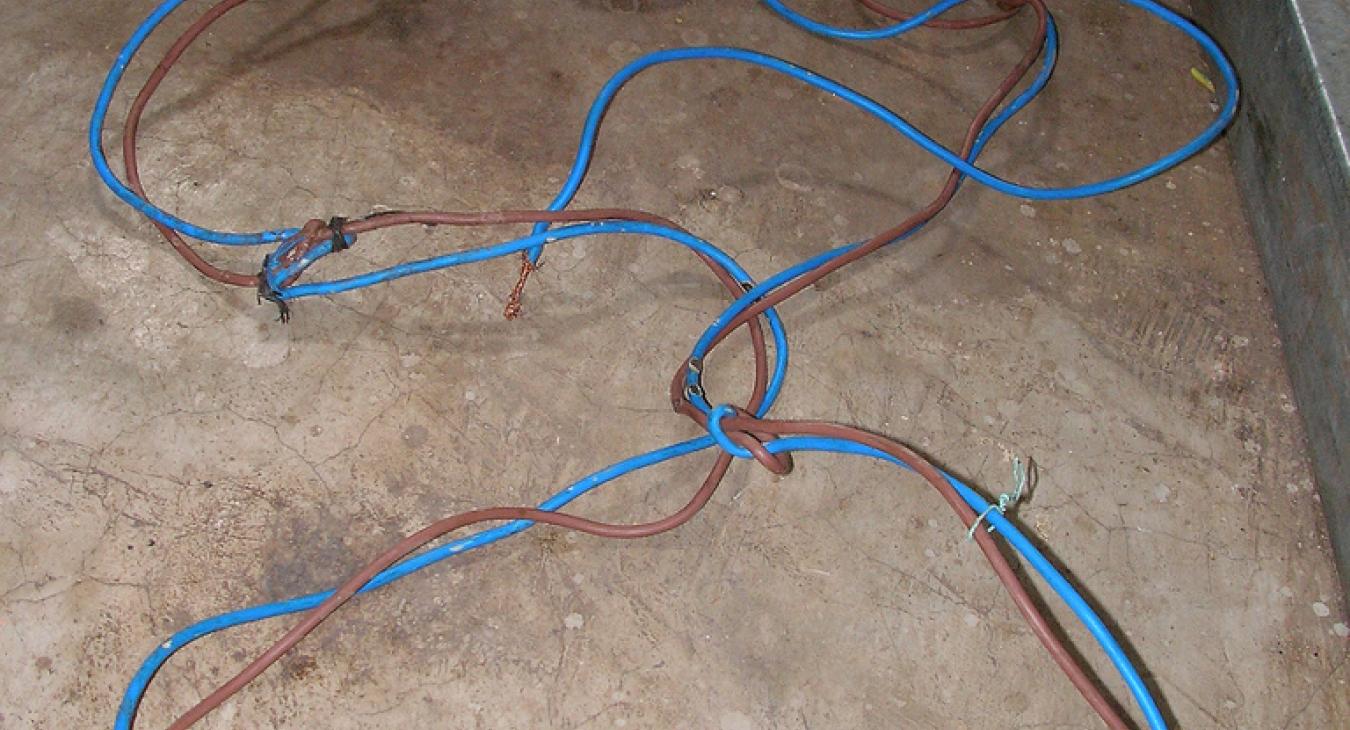
Electrical dangers lurk in all homes. Even with perfect electricity you should still use common sense when using electrical appliances. Accidents and misuse of electrical appliances can still lead to electrical injury or even death.
1) Never take chances with electricity
Many electrical accidents occur because the person did not realise they were doing anything wrong. Take a look through our handy hints and tips on staying safe in your home. By following this advice, you will be keeping yourself, your home and your family as safe as possible from the dangers of electricity.
2) Electricity Kills
If you have any concerns about your home electrics do not take any chances. From a loose socket to a shower that doesn't work, there is always a reason why electrical items are not working as they should. However, don't take matters into your own hands, get a qualified and registered electrician to take a look. It might be a simple matter or a life saving one. Remember electrical accidents cost 1 person their life every week. Make sure it's not you next!
Electrical fires are now the most common cause of house fires in the UK. From dangerous wiring to faulty appliances, the fire service reports over half of the fires they are called to are electrical related.
I visit many clients in and around Nottingham, Derby and Mansfield advising on simple home safety guidelines. I have included the key tips below.
3) Home Electrical Safety Guidelines
-
Keep drinks away from electrical appliances
Have a designated place for drinks that is situated away from vulnerable electrical items such as computers, laptops, televisions, games consoles etc. Drinks spilt over items like these can cause electric shock and electrical fire which could endanger life.
-
Be careful when removing toast
I have witnessed many householders removing toast with a knife whilst the toaster is plugged in. It is a dangerous habit that could cost your life. Yes you may have been doing it for years, but if your knife (or any other metal implement) touches the live components found inside every toaster, it could give you a very nasty electric shock or injury. Do remember to switch your toaster off first if you need to retrieve items from your toaster and never use a metal object.
-
Do not leave devices plugged in for longer than necessary
Hand-held devices such as mobile phones, iPods and net-books charge very quickly. Once charged the chargers can heat up and if left for long periods of time can actually overheat causing electrical fire and expensive damage to your socket and internal wiring. Whilst on the subject of chargers, always ensure you use the charger supplied with your device or an approved product. Never be tempted to purchase cheap inferior chargers from dubious sources. They can be very dangerous and often do not meet safety regulations.
-
Take care with cables and sockets
If you are moving furniture around, take care to ensure you are not leaving cables trailing across rooms. Electrical appliances should be situated near to an electrical socket. Never place cables under carpets or rugs in an effort to hide them. It can cause overheating and fire as well as damage to the cable caused by people walking over them. Take care to ensure that sockets are not overloaded – use extension bars rather than adapters as this places less strain on the socket components which can become damaged from the weight of plug adapters.
-
Never use electrical appliances in the bathroom
Never take appliances such as hair-dryers, radios and portable heaters into bathrooms. I recently visited a property where the owner was using an electric heater with an open vent in a bathroom. He had situated it underneath the wash hand basin and had plugged the heater on in the hallway. Water even splashing onto an appliance is enough to cause an electric shock. In this case, the cable was also at risk of damage by the bathroom door being closed against it.
The only exceptions to this is the use of shavers and electric toothbrushes which can be charged using shaver sockets commonly found in bathrooms. However, care should always be taken to keep water away from these devices when on a charge, and they should never be immersed in water when in use.
-
Take care when carrying out DIY
Doing your own DIY electrical work is not recommended, however with Spring on its way, many households undertake some form of DIY in their homes at this time of year. If you are planning to do any drilling, do make sure it is safe to drill the wall before you begin. I get increased call outs at this time of year to homes and businesses in the Derby and Nottingham areas to repair cables that have been accidentally drilled through.
Never just drill and assume. Always check there are no live cables running along the wall where you are going to drill. You can use a cable detector to establish if it is safe to drill. If you hit a cable you are at serious risk of electric shock and injury which could kill.
How to keep even safer in your home
Having an RCD fitted in your home can be a life saver. If you accidentally do any of these things mentioned above, the RCD would activate and cut the power in a fraction of a second. An RCD can only be fitted by a qualified and registered electrician as part of a consumer unit upgrade. I am more than happy to carry out a consumer unit inspection in any home or business in the Nottingham, Derby or Mansfield area to ensure it is still keeping you safe.
Back to top- Log in to post comments





